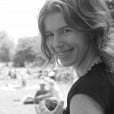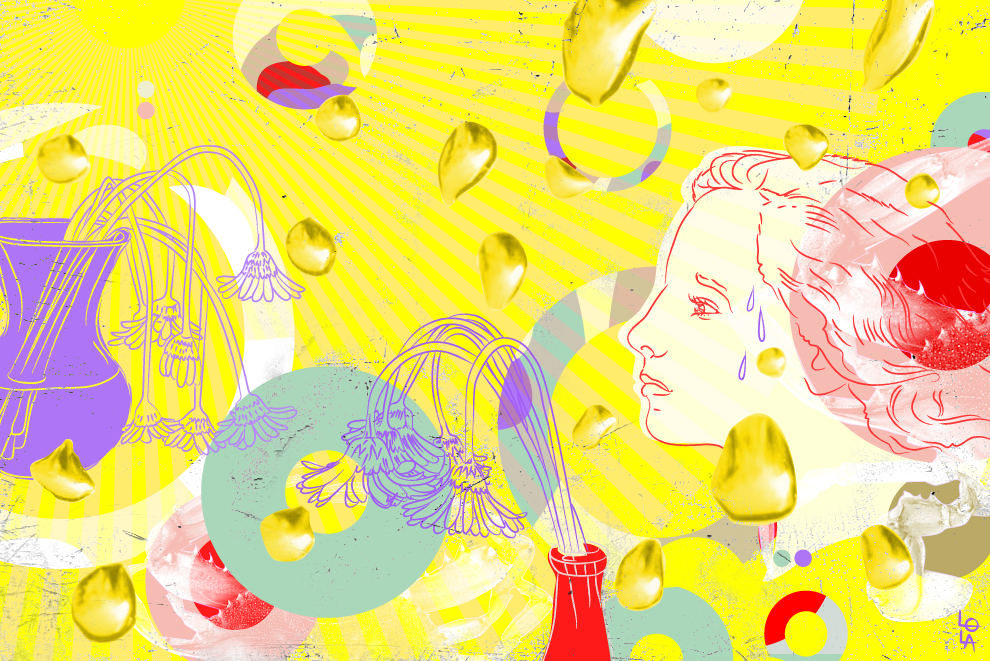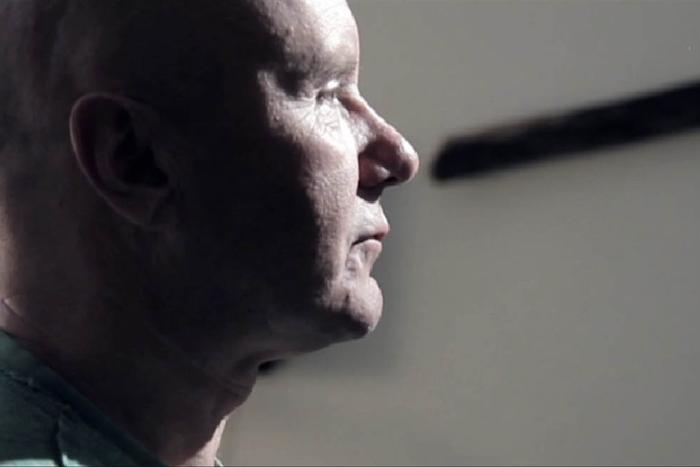Born to parents who would sleep with their heads outside the screen door, raccoons be damned, at the first sign of temperatures in the mid-twenties, I am not a person who deals especially well with the heat. Exacerbating matters, due to my tight budget, selective environmentalism, general distrust of electric appliances, and abiding laziness, I have yet to acquire an air conditioner.
As a result, I experienced this summer, not exactly the coolest on record in Toronto, in a semi-pleasant, eighty-percent-conscious, sweat-soaked daze. I took a lot of sponge baths. Sometimes I even sponge bathed my cat, Dragon. The fact that I tended to survive these encounters unscathed was validating—yes, it must be really hot, I reasoned, or I would surely lose a hand.
With these as the preconditions, I often find it difficult to read much of substance in the summer. But Anne Simpson’s Is, a collection of poetry first published in 2011, proved surprisingly good company for my heat-addled state. In a poem called “Aslant,” Simpson writes:
Some days he is quite lucid. He thinks about thinking.
What it is to be.
What it is to have some of the thinking erased.
These lines describe, I am reasonably sure, a person coming to terms with a medical condition affecting thought (elsewhere in the book, an aneurism is mentioned; the poem on the next page is about a man unable to fasten a button). It is unlikely “Aslant” was written to describe a spaced-out but otherwise able-minded person perspiring on an ugly green sofa during a heat wave. But this probability didn’t stop me from relating to the poem.
In another poem, also uncannily relatable, Simpson describes a feeling I associate with waking after not-so-restful sleep:
But there’s something to one side that needles. A time before this. Before the smear on the mirror. Before tinkering. Before the ululation of a siren. Before scarlet. Before latches. Before eyes. Before opening and closing. Before the pecking of this, this, this.
Is is an exploration of consciousness—the way our experience of the world is made and unmade, even as the world itself is being made and unmade by biological and human forces. Some of the poems deal with shattered or limited states of consciousness—those that can accompany illness, very old age, war, or grief. But the collection’s more steadfast interest is in consciousness more generally, in the limitations and erasures that thinking itself makes necessary.
More than once while reading Is I thought of book art (pun reluctantly intended)—the kind involving an old encyclopedia or other enormous hardback whose interior gets carved into a surprising relief. (Witness some examples here.) The interior sculpture—analogous to thought, to art, to certain altered mental states, and to Simpson’s poems—is formed by erasure. Loss is a necessary part of its creation.
Summer is, for the luckier among us, a time of ignoring or even erasing large parts of life. There is the not-going to school or work, the going away—maybe on vacation, maybe just to the beach or the shower stall—sleeping in, spacing out and escaping, at least partially, from the mind itself. It is funny how, in these reduced, mushy states, many of us form better-than-average memories. (Psychologists have referred to the pleasure we get from remembering certain kinds of experiences as “memory capital,” and have noted that this capital accumulates more readily when we are outside of our workaday routines.)
Simpson is an able guide to that half-awake state that paradoxically encourages the mind to focus on one or two vivid thoughts. If you can tune things out selectively enough, her work suggests, experience becomes art. I read Is self-centredly, as a sort of Lonely Planet guide to my summer-induced mental states, and I was not disappointed.
Here is Simpson on the ever-present threat of bee stings:
Broken necklace of bees in curled, damp grass.
And the living—thousands—roused. Humming.
On being the walking product of too much time spent with electronic devices:
My speech continues, monotonously, on Live View. It doesn’t show blue crabs, bottlenose dolphins, giant halibut, reddish egrets, marlin, brown pelicans, bluefin tuna, sperm whales, loggerhead turtles. But they’re pulled by the undertow of my words.
On being anesthetized for summer surgery. (Summer surgery is a thing, right? I have only ever had my wisdom teeth out. It happened during July. The two people I know who have had knee surgery both scheduled it during the summer. It seems practical, at any rate.):
Miss Haffajee in her green sari, a Venn diagram flowering from the red dot on her forehead, keep counting, he said, seventy-nine, I told him, rain on the Cobequid Pass, the road a dream of water, seventy-two, slippery, and a steep ditch on one side…
And, possibly my favourite, on window washing, carrying a bucket at the beach, emotional overload, blackberry picking, or drinking from a really full pint glass:
A flood can be contained by a basket, a box made of wicker, twine.
A lobster crawling into a lobster trap. The flood enters the same way.
The woman picks up the flood in the box, realizes she can’t put it down.
There are of course ways of reading Is that aren’t entirely self-indulgent, that allow the book to speak on broader issues such as environmental destruction, history, grief, love, medicine, and empathy. (The book addresses all of these subjects eloquently and insightfully.) But if you are one of the people whom summer drives into a sweaty, navel-gazing state, then, like me, you will appreciate that Is meets you where you are (or, now that it is almost fall, where you might prefer to linger), engaging with your half-thoughts and prodding them to become more meaningful.






